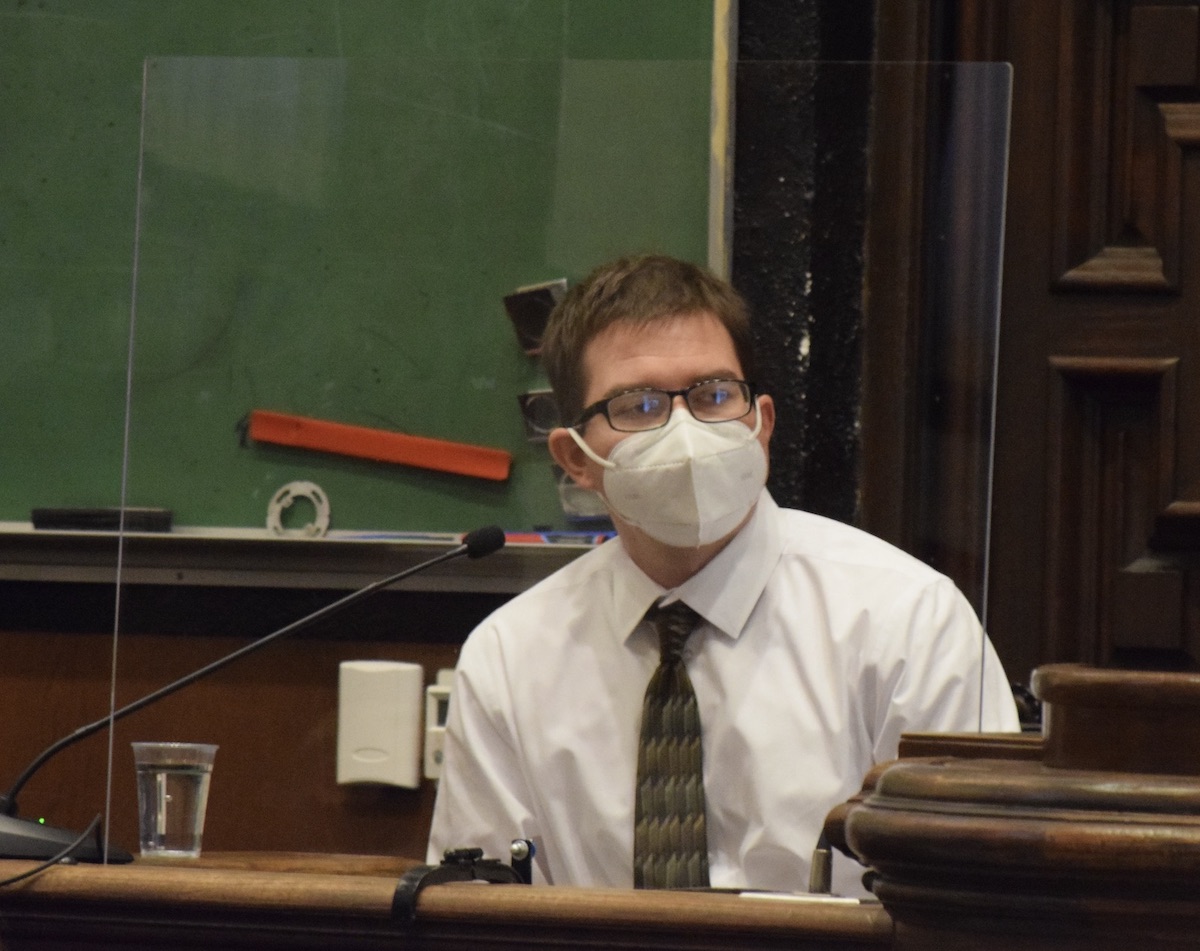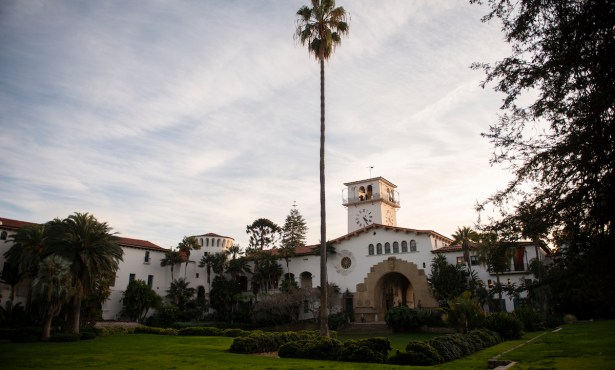Pierre Haobsh Takes Stand for First Time in Han Murder Trial
Defense Team Calls Witnesses as Case Enters Final Week

Accused triple-murderer Pierre Haobsh took the stand for the first time in the bench trial that will decide if he is guilty of killing former business associate and herbalist Dr. Henry Han; his wife, Jennie Yu; and their 5-year-old daughter, Emily Han, in March of 2016.
Haobsh was the second witness called by the defense team of Christine Voss and Michael Hanley on Monday, after a meandering back-and-forth questioning of the defense’s expert witness, Dr. Brent Turvey, which took most of the day.
Turvey, a forensic scientist who joined the trial via Zoom from Aguascalientes, Mexico, specializes in crime scene reconstruction and investigation science and was called up to testify in opposition to the prosecution’s ballistic expert Dave Barber, who matched casings found at the scene to the Ruger .22 pistol found in Haobsh’s car when he was arrested. According to Turvey, who cited a report that was criticized by the FBI and the Department of Justice, the current methodology used to examine and make a ballistics match is not accurate enough to scientifically call for “match.”
He repeatedly said that “law enforcement” standards were not reliable, even leading to prosecutor Hilary Dozer asking if he had a “problem” with law enforcement.
“I have a problem with police officers calling themselves scientists when they are not,” Turvey said.
His testimony was peppered with long-winded, winding non-answers and objections from both sides, leading to several terse exchanges between the witness, Dozer, Hanley, and Judge Brian Hill — who at one point called Turvey’s remarks “caustic.”
After more than five hours of testimony from Turvey, the defense called up Haobsh himself, who will likely be the final witness called in the trial.
Sign up for Indy Today to receive fresh news from Independent.com, in your inbox, every morning.
In a short-lived testimony cut off by the court’s evening recess, Voss lobbed softballs to her client, asking about his life growing up and business ventures leading up to and shortly after Haobsh meeting Han in 2014.
Born in Plano, Texas, Haobsh said he grew up all across the country — living in Georgia for a time and later attending a boarding school in Concord, Massachusetts — and described himself as always having a “thirst for learning.” When he lived in Tempe, Arizona, Haobsh said he spent a lot of time at Arizona State University’s library, reading textbooks for fun and buying course materials so he could study at home.
As he describes himself to the court in Judge Hill’s Department 2 courtroom, he is composed and intelligent; he sounds as if he could be an expert witness called up to testify instead of a 31-year-old facing a triple-homicide charge. He talks about static fields, permanent magnets, mathematical concepts, and designing computer models. He says he never just took what textbooks say at face value — he preferred to actually perform the experiments himself. Textbooks say water boils at 212 degrees Fahrenheit, but you could actually boil it at room temperature without a burner, he says, because it’s actually about pressure, not heat.
He talks about his mother dying of cancer when he was around 18, and how he never went past a high-school level education, though he learned about high-concept science and new energy technology through reading and online research. He talks about moving to Arizona near the end of 2012 to pursue a “permanent magnet” energy concept, which ended up with him earning a $15,000-per-month salary and a Shelby GT500 that came as a “signing bonus” with a company called Revolutionary Energy Machines.
The company never was able to make a machine that worked on a large enough scale, but it was through this company that he would eventually meet Dr. Han at a meetup Haobsh called a “business incubator,” where startups and investors would brainstorm and network their newest ventures.
The two would eventually become part of a project looking to create lab-grown synthetic CBD, with Haobsh working in the lab to create the cannabinoids on a large scale, and Han providing herbalist experience and paying Haobsh a salary in exchange. They hoped to use the CBD oils for new medicines through Han’s herbal medicine business.
Haobsh will return to the stand Tuesday morning, and Judge Hill will decide his fate in the non-jury trial shortly after closing arguments.
Support the Santa Barbara Independent through a long-term or a single contribution.



